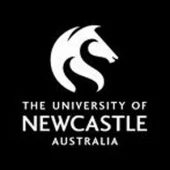
Master of Social Change and Development
University of Newcastle
Type of institution: University/Higher Education Institution
Level: Postgraduate
CRICOS: 00109J
The program is designed to provide students who wish to pursue a career with government agencies, non-government organisations (NGOs) and private firms, with the knowledge and skills to understand the processes of social change and development and to improve their effectiveness as administrators, researchers, development planners, local officers, educators, or managers. As people and governments from the rich world take on the responsibility to engage with the developing world, there is a growing need for qualified professionals to work in the community development and policy analysis sectors of funded development projects and aid organisations. For those working now in developing countries, this program enhances your capacity to improve outcomes and make change effectively.
Designed for
Students who wish to pursue a career with government agencies, NGOs and private firms
Structure
120 units
Subjects
- Social change and development Social Science Research Methods Social Science Project Design and Evaluation
Standard entry requirements
- Graduate Certificate or Graduate Diploma
- OrBachelor Honours Degree
- OrBachelor Degree in a related field plus one year’s relevant work experience
- OrDiploma or Advanced Diploma plus five years' relevant work experience.
Study pathways
Students apply for credit to enter into the program by first completing the Graduate Certificate in Social Change and Development (40 units) or apply for Recognition of Prior Learning for work experience in a Discipline area.
Study information
| Campus | Fees | Entry | Mid year intake | Attendance |
|---|---|---|---|---|
| Callaghan | International: $50,063 | No |
| |
| Online | International: $50,063 | No |
|
Fee comments
Campuses: Callaghan, Online.
Fees are indicative and subject to variation. Overall program fee may vary based on course selection.
Further information
Discipline areas include: Sociology; Geography; Anthropology and development studies; Agriculture; Environmental studies; Education; Municipal community or Social work/Welfare; Indigenous Studies; Politics and Economics.





